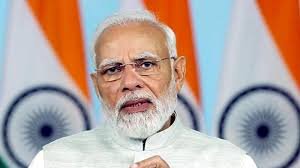The BJP government is pushing forward with its ambitious “One Nation, One Election” proposal, which aims to hold simultaneous elections for both Parliament and state assemblies. As the bill is set to be introduced in Parliament, it faces significant constitutional hurdles. A two-thirds majority in both the Lok Sabha and Rajya Sabha is required to pass this constitutional amendment, along with approval from at least half of India’s state legislatures.
In the Lok Sabha, the NDA holds around 61% of the seats, and while gaining the remaining support is feasible, the Rajya Sabha presents a tougher challenge where they hold only about 38%. Opposition parties have voiced concerns that this move could weaken the federal structure and push regional issues to the sidelines.
Despite these challenges, Prime Minister Narendra Modi is keen to see the bill through, advocating for the efficiency and cost-saving benefits of synchronized elections. A high-level panel led by former President Ram Nath Kovind is already studying the proposal’s feasibility




